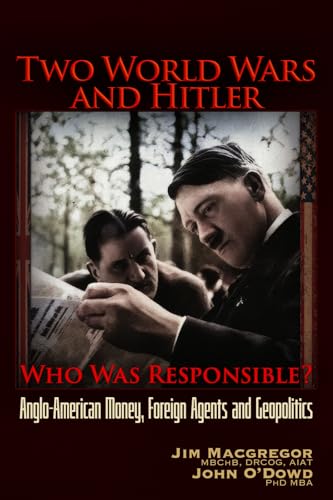
Selling the Great War
by Alan Axelrod
"The Making of American Propaganda"
Popularity
4.8 / 5
* A book's popularity is determined by how it compares to all other books on this website.
Where to buy?
Buy from Amazon* If you buy this book through the link above, we may receive a small commission at no extra cost to you.
Selling the Great War by Alan Axelrod
Details
War:
World War I
Perspective:
Researcher
True Story:
Yes
Biography:
No
Region:
North America
Page Count:
258
Published Date:
2009
ISBN13:
9780230619593
Description
Brief Summary
Selling the Great War by Alan Axelrod narrates the compelling story of George Creel and the Committee on Public Information, a pivotal propaganda initiative during World War I. The book explores how Creel, a maverick journalist, was commissioned by President Woodrow Wilson to shift American public opinion towards supporting the war effort. Through innovative techniques in mass communication, advertising, and public relations, the Committee on Public Information worked tirelessly to cultivate a nation of supporters for the war. Axelrod's account provides insight into the significant impact this initiative had on America's path to becoming a global power.
Main Themes and Topics
One of the main themes of Selling the Great War is the power and influence of propaganda in shaping public perception and national policy. Axelrod delves into how George Creel's committee harnessed emerging communication technologies and methodologies to effectively persuade an isolationist American public to embrace involvement in World War I. The book also explores the ethical implications and consequences of using propaganda as a tool of governmental persuasion, a tactic that would be employed by various regimes, notably Adolf Hitler's, in the following decades. Additionally, the book discusses the transformation of the United States into a global power and how such propaganda efforts contributed to this significant historical shift.
Writing Style and Tone
Alan Axelrod employs a captivating and engaging narrative style that makes the historical content accessible and intriguing to readers. His prose is both informative and fluid, ensuring that complex historical events and tactics are conveyed with clarity. The tone of the book is analytical yet compelling, drawing readers into the unfolding events and highlighting their long-term significance. Axelrod's skillful storytelling brings to life the historical figures and national sentiments of that era, providing readers with a vivid understanding of the forces that shaped modern propaganda.
Criticism
While Selling the Great War offers an in-depth analysis of George Creel's propaganda machine, some critics argue that the book could benefit from a broader contextualization of global propaganda efforts during the same period. Additionally, there is feedback that Axelrod's focus heavily leans on American perspectives, potentially overlooking the complex international dynamics at play. However, these criticisms are often counterbalanced by praise for the book's thorough research and engaging narrative style.









